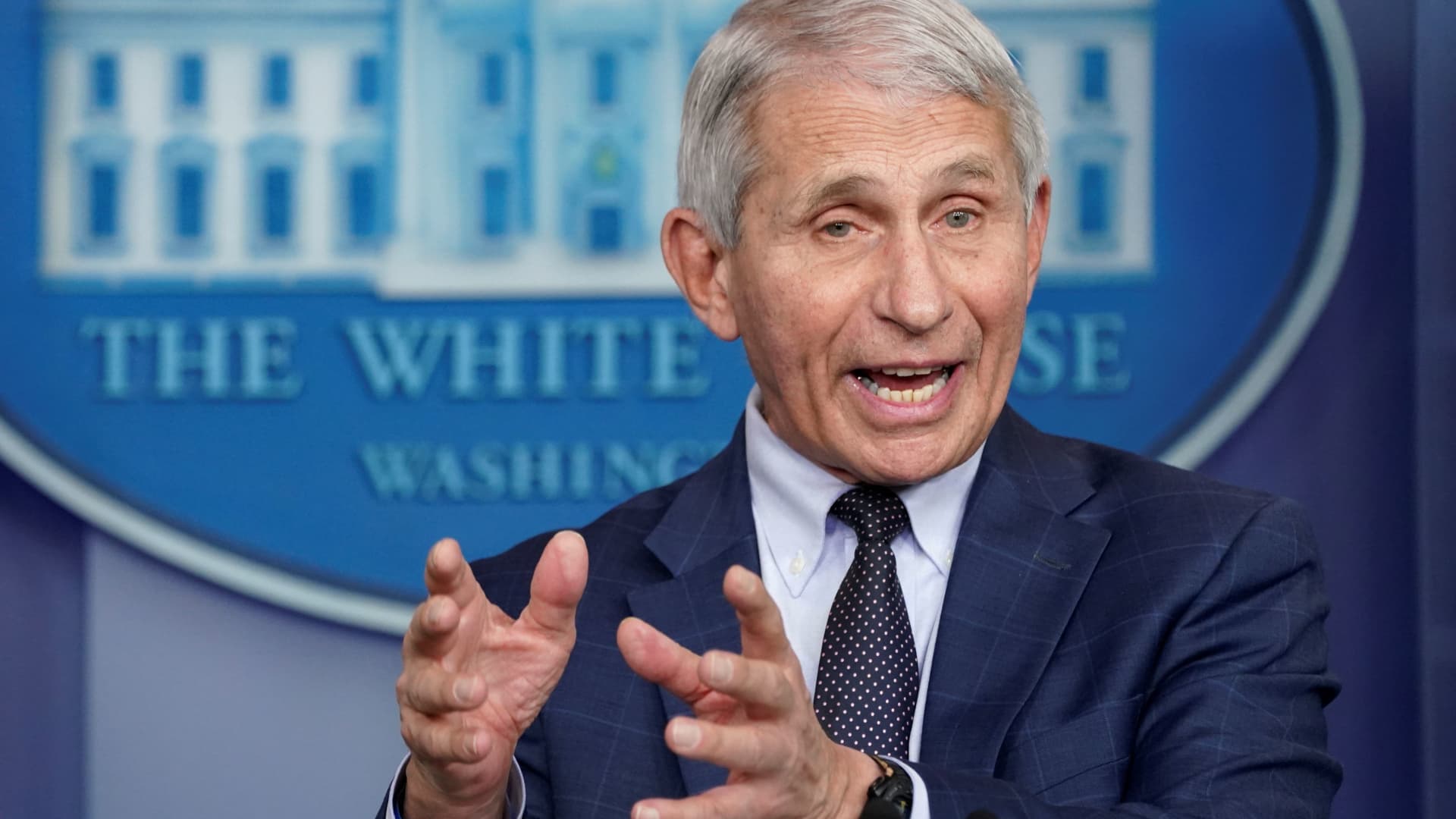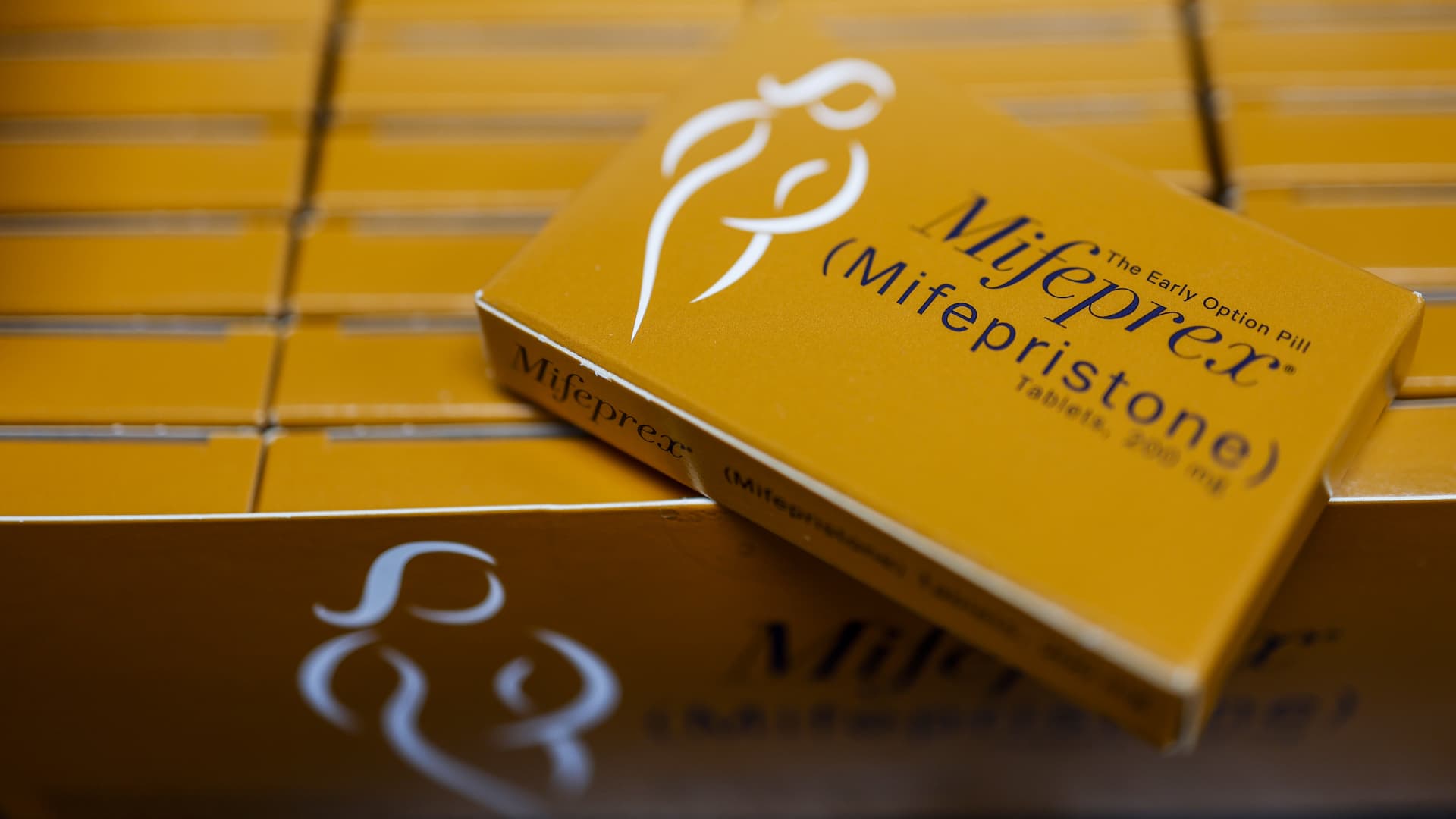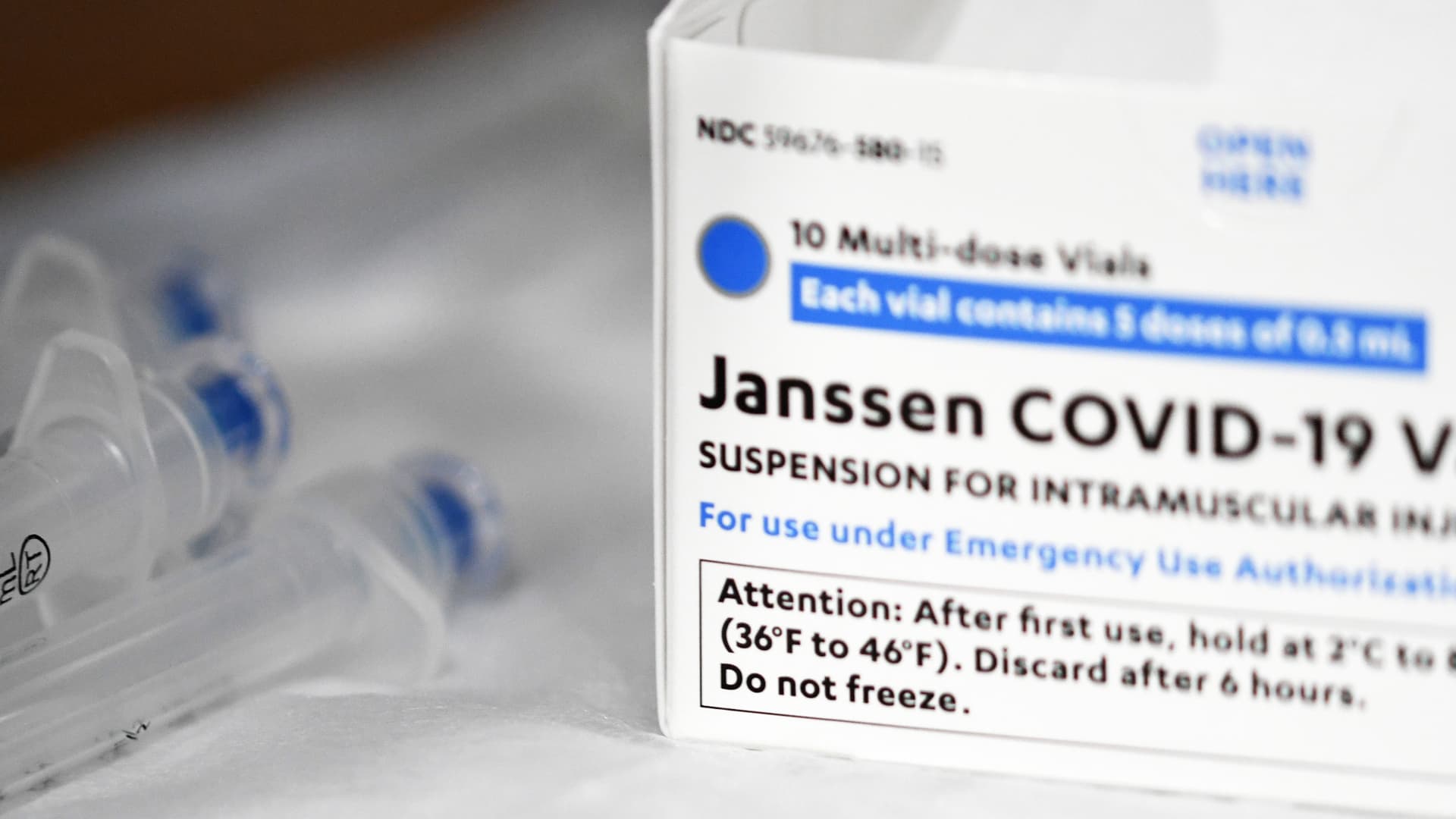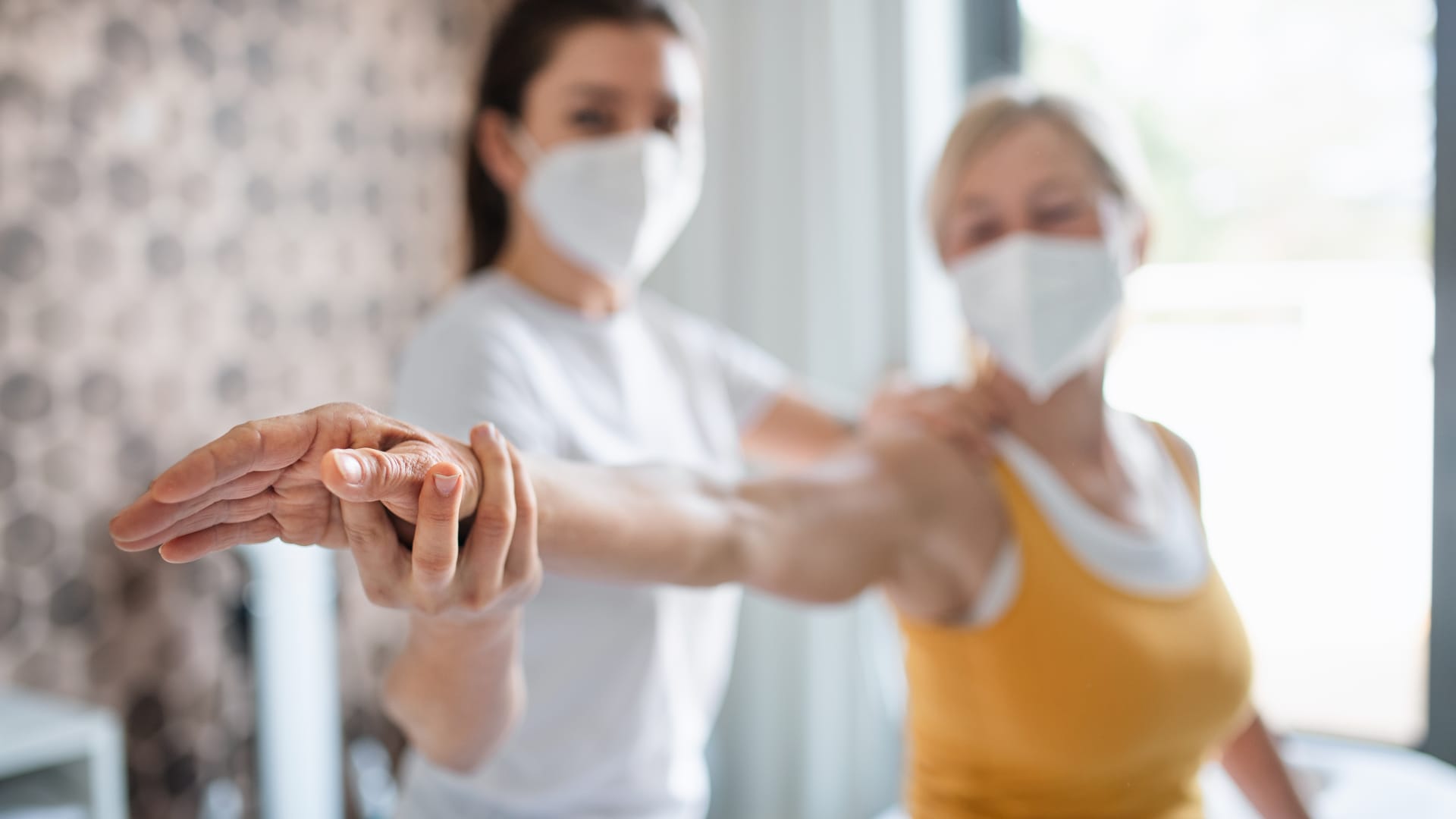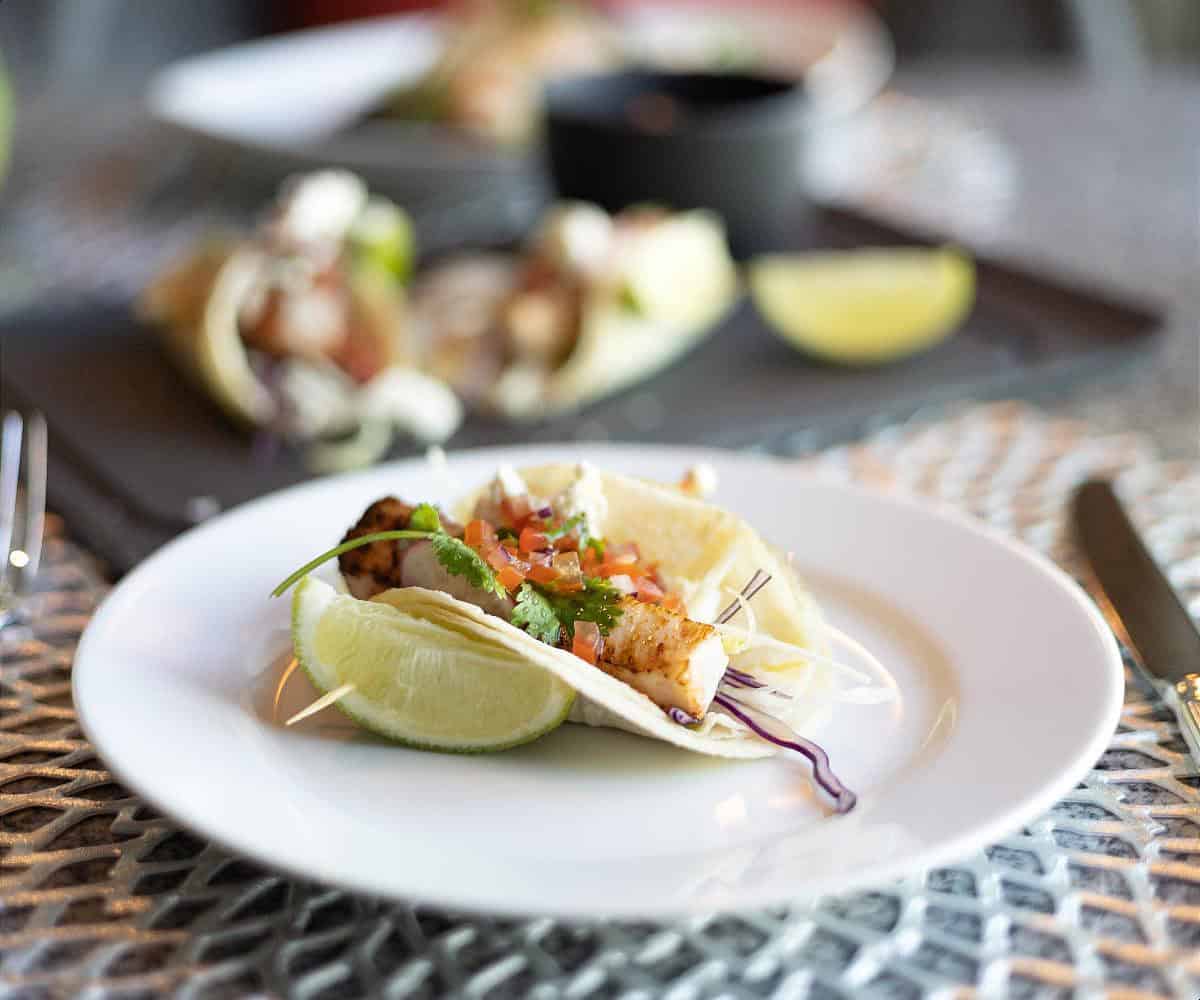U.S. has more than 36,000 Jynneos monkeypox vaccine doses immediately available in national stockpile
Bavarian Nordic also holds 1 million U.S.-owned doses and can fill another 16.4 million shots upon request by the federal government.
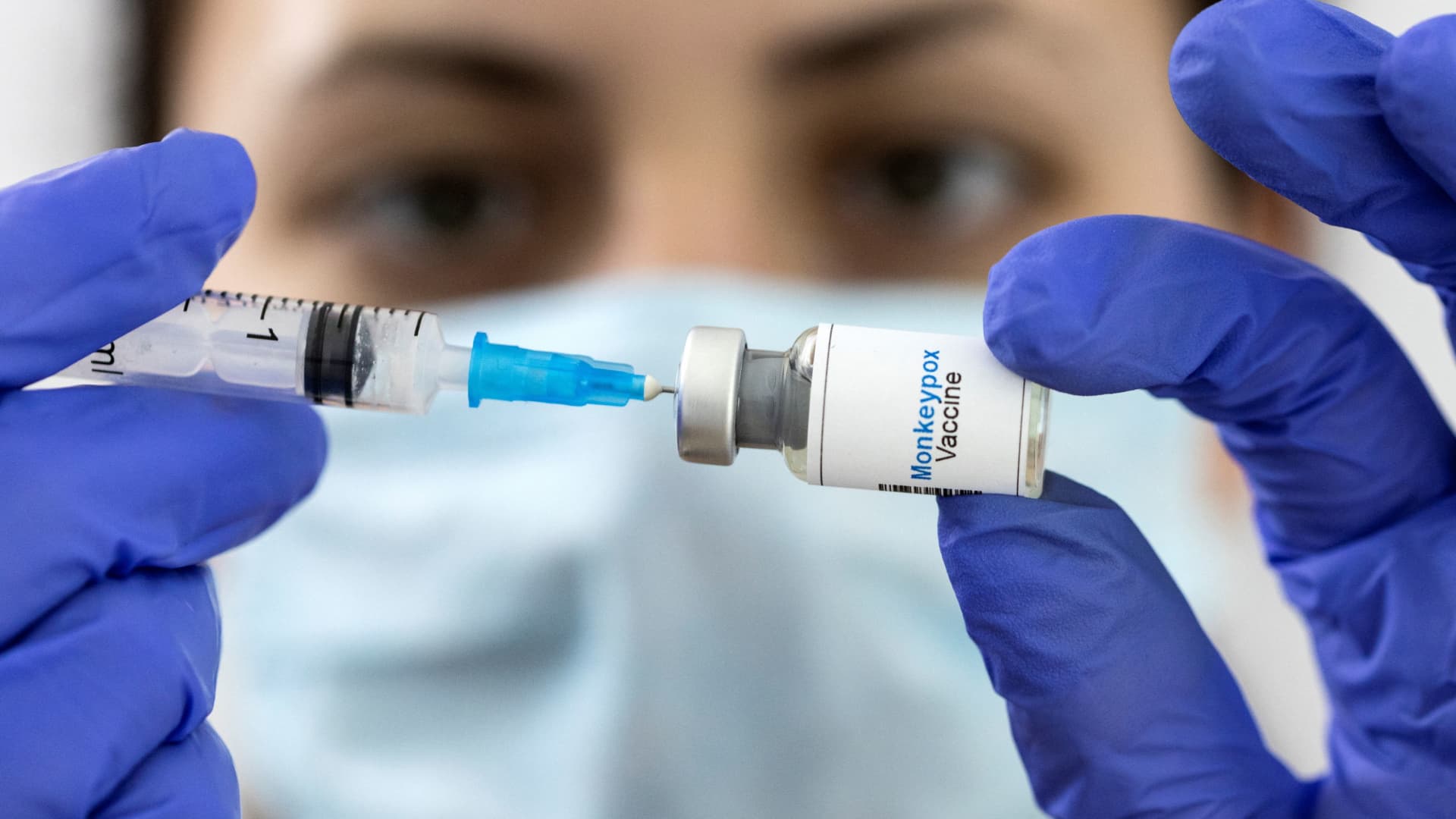
Mock-up vials labeled "Monkeypox vaccine" are seen in this illustration taken, May 25, 2022.
Dado Ruvic | Reuters
The United States has more than 36,000 doses of the Jynneos monkeypox vaccine immediately available in the strategic national stockpile, the Health and Human Services Department said Monday.
The Centers for Disease Control and Prevention is sending the vaccine to people who have had high-risk exposures to the virus in an effort to stop the disease from spreading further. The U.S. has identified 25 confirmed or presumed cases of monkeypox cases across 12 states as of Friday.
The U.S. told Bavarian Nordic, a Danish biotech company, to ship an additional 36,000 doses of Jynneos in the near future, said Dawn O'Connell, HHS assistant secretary for preparedness and response. Bavarian Nordic is holding more than 1 million doses owned by the U.S. and can fill 16.4 million more doses upon request by the federal government, the spokesperson said.
The global monkeypox outbreak is the largest ever outside of Africa. Nearly 800 confirmed cases of monkeypox across 27 countries have been reported to the World Health Organization. Most of the cases are in Europe, particularly in Portugal, Spain and the United Kingdom.
The Food and Drug Administration approved Jynneos for adults ages 18 and older at high risk of smallpox or monkeypox in 2019. The two-dose vaccine is the only shot approved to specifically prevent monkeypox. However, the U.S. also has more than 100 million doses of the older-generation smallpox vaccine ACAM2000, the spokesperson said. ACAM2000 is made by Emergent BioSolutions
The U.S. has distributed 1,200 doses of Jynneos and ACAM2000 for people who have high-risk exposures to monkeypox, said Dr. Raj Panjabi, who leads the White House pandemic preparedness office, in a call with reporters Friday.
Though ACAM2000 was approved by the FDA in 2007 to prevent smallpox, the vaccine can also be used to protect against monkeypox under a CDC program. Monkeypox is in the same virus family as smallpox, though it is much milder.
The U.S. is also distributing an oral antiviral called tecovirimat that can be used to treat people infected with monkeypox, Panjabi said. Tecovirimat was the first pill approved by the FDA in 2018 to treat smallpox, though it can also be used against monkeypox under a CDC program.
The CDC generally recommends Jynneos over ACAM2000, which can have serious side effects. ACAM2000 uses a live mild virus strain in the same family as monkeypox and smallpox that can still spread in the human body and to other people. The vaccine is administered as a single dose that is scratched into the upper arm, and the virus grows into a localized infection in the form of a blister.
The patient can spread the virus to other parts of their body if they scratch the blister and then rub the eye for example, potentially resulting in vision damage. The virus can also spread to other members of the patient's household, which can be dangerous if a family member has a weak immune system or is pregnant or breast feeding. The FDA has warned that it's important for people who receive ACAM2000 to take proper care of the injection site so they don't spread the virus.
There are also large groups of people who are not supposed to receive ACAM2000 under CDC guidelines due to the risk of side effects. These people include women who are pregnant or breast feeding, people with weak immune systems, individuals with skin conditions and those with heart disease.
In pregnant women, the virus strain from the vaccine can spread to the fetus and cause stillbirth. People with weak immune systems face a risk that the virus will spread uncontrollably can cause a dangerous infection. Individuals with skin conditions such as eczema or atopic dermatitis are also at risk of the virus spreading on their skin and causing a life-threatening infection. ACAM2000 is also associated with a risk heart inflammation, known as myocarditis and pericarditis.
The Jynneos vaccine has fewer side effects because it uses a mild virus strain that is not able to replicate in the human body so it cannot spread.
ACAM2000 has demonstrated high levels of protection against monkeypox in animal models and is expected to provide 85% protection against disease from the virus, similar to earlier versions of smallpox vaccines, according to Mark Slifka an immunologist at Oregon Health and Science University. Not as much is known about the effectiveness of Jynneos because the vaccine is newer, but it produced good antibodies in humans and should protect against severe illness, according to Slifka.
The global monkeypox outbreak has raised concern among public health officials because it is unusual for the virus to spread so much outside West and Central Africa. Historically, the virus has jumped from rodents to people in remote villages in Africa. However, the virus now appears to be transmitting better between people through close physical contact, according to Slifka.
WHO officials said last week that the virus has probably been spreading outside Africa undetected for sometime, though it is unclear for how long.
Most of the cases so far have been reported by gay and bisexual men who developed symptoms and sought care at sexual health clinics, according to the WHO. Health officials have emphasized that anyone can catch monkeypox through close physical contact. However, they said it is important to raise awareness of the situation in the LGBTQ community so individuals can protect their health.
Dr. Jennifer McQuiston, a CDC official, told reporters last week that most of the U.S. patients had a history of international travel in the 21 days before symptoms onset, which indicates that they likely picked up the virus abroad. Although the CDC doesn't believe monkeypox is spreading widely in the U.S. right now, health officials can't rule out the possibility that it is transmitting domestically, McQuiston said.
Most people who catch monkeypox recover in two to four weeks without specific medical treatment though the rashes that characterize the disease can be very painful, McQuiston said. The health threat to the public is low right now, she said.
Monkeypox usually starts with symptoms similar to the flu and rashes that then start to spread over the body. The virus is primarily transmitted through skin-to-skin contact with these rashes. People can also catch monkeypox through shared bedsheets or clothing. People who have lesions in their throat or mouth can also spread the virus through respiratory droplets, though it's not easy for the disease to transmit this way, according to the CDC.
People with confirmed or suspected monkeypox infections should isolate at home until state or local health departments say otherwise, according to the CDC. People with monkeypox should leave isolation only after the rashes have scabbed over, fallen off and a new layer of skin has formed.

 FrankLin
FrankLin 







